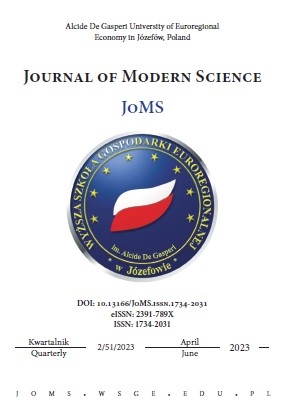FOOD PROSUMPTION IN HOUSEHOLDS IN THE CONTEXT OF THE COVID-19 PANDEMIC IN POLAND
FOOD PROSUMPTION IN HOUSEHOLDS IN THE CONTEXT OF THE COVID-19 PANDEMIC IN POLAND
Author(s): Paulina Trębska, Agnieszka Biernat-JarkaSubject(s): Behaviorism, Health and medicine and law
Published by: Wydawnictwo Akademii Nauk Stosowanych WSGE im. A. De Gasperi w Józefowie
Keywords: Food self-supply; food prosumption; sustainable consumption; covid-19; Poland;
Summary/Abstract: During the pandemic crisis we have been observing a lot of new phenomena, and one of the areas that has changed significantly is consumer behavior. One interesting field of research is prosumer behavior related to household management during the COVID-19 pandemic period. Pandemic is the time of limited mobility, availability of products and services, time of paying attention to health and spending more leisure time at home. Prosumption is the most effective way to satisfy the needs of household members, minimizing costs and fostering the protection of the level of need fulfillment. The aim of this article is to assess consumer behavior in terms of subsistence food production before and during the COVID-19 pandemic. Food prosumption comes in line with new consumer trends, which constitute elements of sustainable development and food security. To explore investigate the subject, a direct survey was conducted using a diagnostic survey method with the application of Computer Assisted Web Interview (CAWI) survey technique. The survey was conducted in July 2022 among 1112 respondents[I]. Based on the results obtained, two indexes were built to describe two categories of food self-supply: food production index and food processing index. The obtained indexes were juxtaposed with variables describing socio-economic characteristics of households, determinants of consumer behav-ior. Statistical, descriptive and comparative methods were used. The research shows that consumers are very active in the field of food prosumption during the COVID-19 pandemics. Analyzing the variables describing households, we obtain information that income does not correlate with the level of food self-supply in households. In turn, the number of people in the household and the place of residence have a significant impact on the level of food self-supply in the surveyed households.
Journal: Journal of Modern Science
- Issue Year: 51/2023
- Issue No: 2
- Page Range: 588-608
- Page Count: 21
- Language: English

